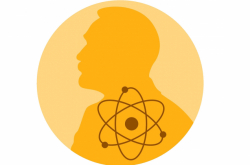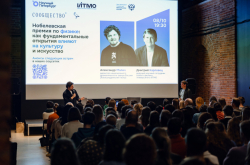The 2018 Nobel Prize in Economics, widely regarded as the most prestigious award in that field, went to two American scientists, Paul Romer and William Nordhaus, who study economic growth cycles and their effect on social and natural phenomena. The researchers’ main achievement lies in their creation of methods for solving the fundamental issues of sustainable economic growth.
Nordhaus, a graduate of Yale University, served on US President Jimmy Carter’s Council of Economic Advisers from 1977 to 1979. He is most widely known for his research on economic modeling and climate change. The scientist was the first to create a quantitative model showing the global interaction between economy and climate. Nordhaus posited that the most effective solution to man-made global warming is a world-encompassing carbon tax system, and explained how human welfare will be impacted by climate change.
“His quantitative model was the first to show the global effect of economy, manufacturing, transportation and anything else that consumes hydrocarbon resources, on climate. Nordhaus proved that the best solution to climate change is to have all countries establish taxes on greenhouse gas emissions. Some scientists claim Russia to be among the biggest producers of greenhouse gases, although I would disagree; most of it comes from the countries that are heavily involved in manufacturing,” notes Elena Budrina.
Paul Romer, a professor of the New York University, served as the World Bank’s Chief Economist between 2016 and 2018. Like Nordhaus, he was featured on the Nobel Prize’s list of potential laureates numerous times, which is why their victory was not a surprise to the professional community. In economic circles, Romer is known as the author of the endogenous growth theory, which aims to explain how economic forces affect businesses’ desire to create new ideas and innovations.
“William Nordhaus expanded on the theory of the “right to pollute” market, which emerged between the 60’s and 70’s. Its main idea is that every enterprise or household that pollutes the environment must compensate for the damage through buying a patent to a certain volume of pollution. This theory remained a theory, although it was implemented as a pollution control tool in the United States. Nordhaus went further, creating a theory and a model that took into account the climate change that occurred due to technological progress. At the same time, Paul Romer, who had been doing research since the 80’s, added to the pre-existing theory on climate change caused by innovation and progress, studying the ways in which the economy motivates businesses to create new ideas and innovations. Their research led to a revolution in the traditional approach to macroeconomic analysis and planning and introduced new resource types that had previously been overlooked,” explains Elena Budrina.
According to the Nobel Committee, Nordhaus and Romer’s contribution to science is methodological and gives the public a fundamental understanding of the causes and consequences of technological innovations and climate change.
“ITMO University is within the trend outlined by this year’s Nobel laureates. We create technological innovations, propagate them and help develop science and intellectual resources, forming a new type of economy – an economy of knowledge. Talent hunting, our applicants’ high Unified State Exam scores, SIEs and research centers: all these things are the factors studied by Nordhaus and Romer,” comments Prof. Budrina.
Scientists and journalists today are talking about the Nobel Prize’s potential to become an example to Russia. Elena Budrina, too, agrees that the American scientists’ work is important for Russia. The country is lacking the traditional resources needed to establish a stable trend for advanced technological development, while resources such as knowledge and new technologies, experts say, are of utmost priority to one-third of all production enterprises. In other words, when businesses lack the top specialists needed to solve a problem, they try to buy or attract them to Russia, thus acquiring the knowledge that produces technological innovations.
“The Nobel Prize isn’t given for things we don’t know, but for particular works that analyze the main trends. Russia, like other countries, lives with an understanding that technological change is necessary, and is striving to develop innovations and introduce them as soon as possible. Our university is one of the country’s leaders in that regard,” concludes the expert.
The Nobel Prize in Economics, officially named The Sveriges Riksbank Prize in Economic Sciences in Memory of Alfred Nobel, is awarded by the Royal Swedish Academy of Sciences. It is, however, the only Nobel Prize that isn’t strictly a part of Alfred Nobel’s legacy, as he didn’t include such a prize in his will. Some of Nobel’s descendants oppose the prize, namely its association with Alfred Nobel’s name. Nevertheless, thanks to the efforts of the Sveriges Riksbank, 2018 marks the 50th time that the Nobel Prize in Economics is given out.





